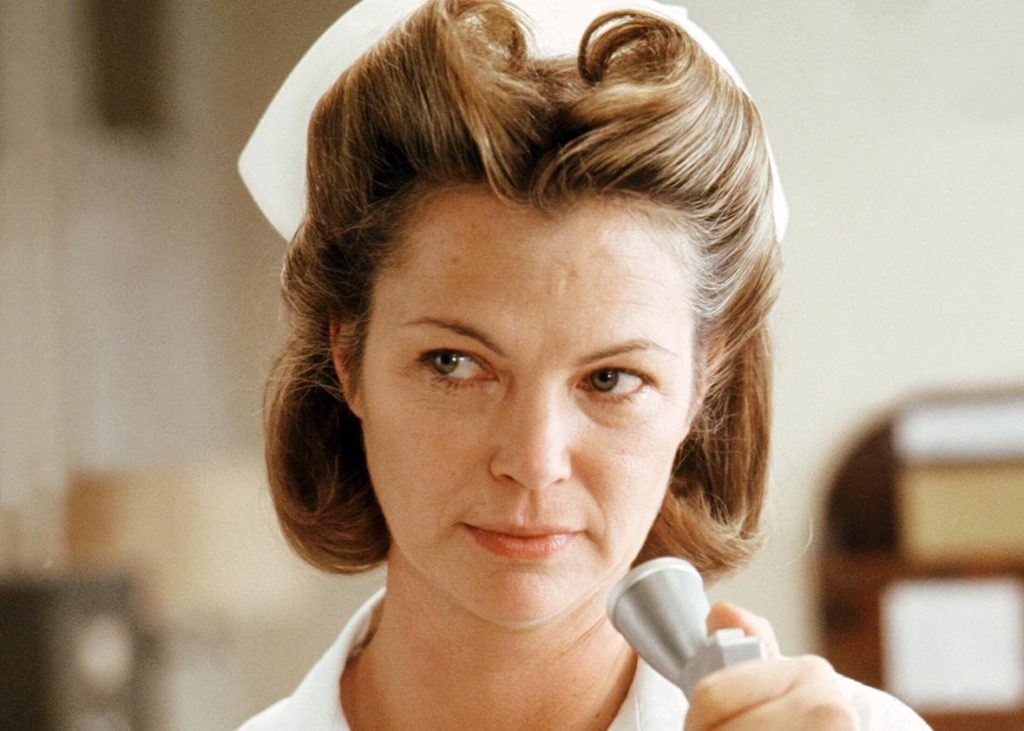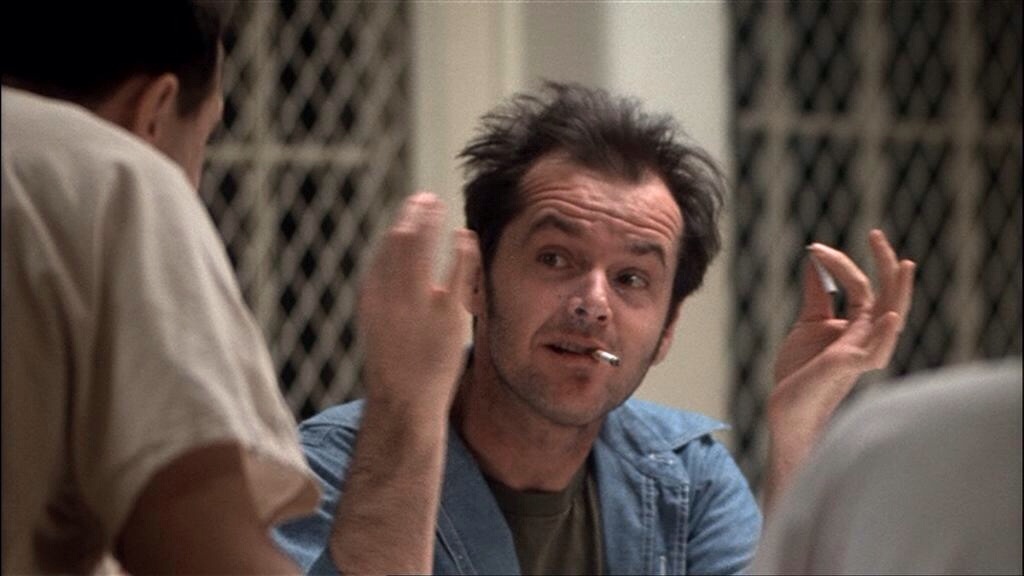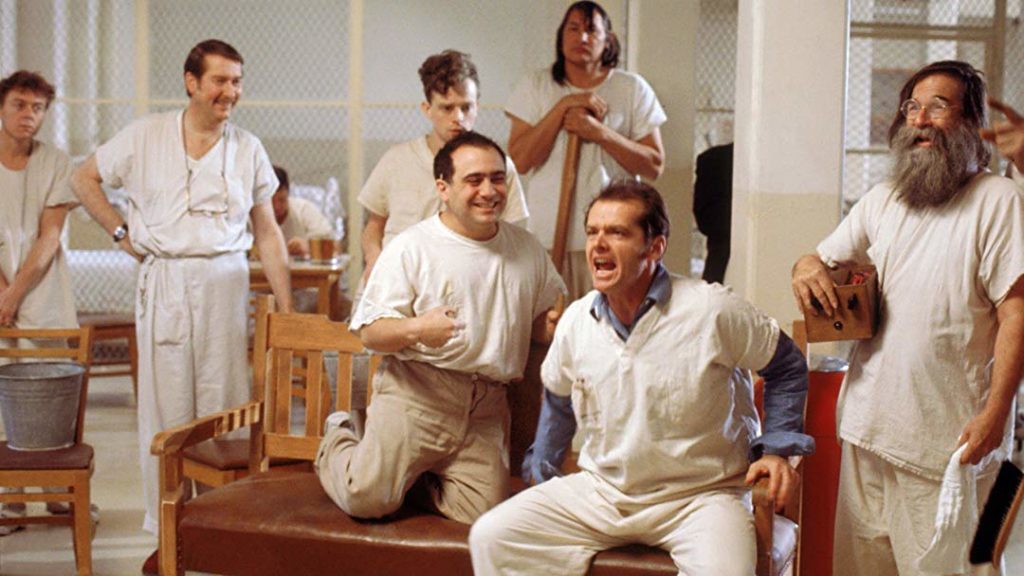“One Flew Over the Cuckoo’s Nest” is widely regarded as one of the greatest films ever made. It won five of the nine Academy Awards it was nominated for; including the Big Five – a feat accomplished only two other times in history (“It Happened One Night” (1934) and “The Silence of the Lambs” (1991). Based on the 1962 Ken Kesey novel of the same name, “One Flew Over the Cuckoo’s Nest” was released in late 1975, and would cement Jack Nicholson on the Hollywood Mount Rushmore, and introduce audiences to other big names like Danny DeVito and Christopher Lloyd, both of which would be making their big screen debut.
Its premise is a simple and often employed concept. The movie is set within the walls of The Oregon State Hospital, a mental institution in picturesque Salem, Oregon. The ensemble group of patients suffer from a myriad of conditions that keep them confined to the hospital, as they live out their days in a shared misery. A brash, small time crook named Randle McMurphy arrives, dogging the system, and faking being crazy to avoid hard labor. McMurphy becomes the father figure, mentor, and friend that the patients have been devoid of their entire lives.

Deeper analysis unveils much more. We see the growth of many of the patients in the ward, some with good results, and others not so much. McMurphy (Jack Nicholson) connects with the men by treating them as equals, and we get amazing scenes depicting this through basketball games on the courtyard, or watching the World Series in the hospital’s entertainment room. The personal maturation and bond between McMurphy – at the onset a simple criminal who cares about nothing other than himself – and The Chief (Will Sampson), a Native American patient who is unable to speak or hear, is what makes the movie shine.
Not to be outdone, the presence of one of the most vile and revered antagonists in movie history oversees the ward. It’s not Darth Vador, Lex Luthor, or a butcher with a hockey mask. Nurse Ratched (Louise Fletcher) keeps tight control over the patients, treating them as inmates rather than with dignity, and does so in such a subtle way that these grown men are inexplicably terrified of her. Fletcher would win the Academy Award for Best Actress and deservedly so. Her calm demeanor versus the fiery McMuprhy is a chess match that’s pure perfection. It’s order against chaos – and only one side is going to win.
Jack Nicholson pulls an epic performance. His later iconic roles in “The Shining” and “Batman” are all aftermaths to the portrayal of Randle McMurphy. He really is the only actor who could have done the job so well, but what’s great about the casting is that all of the others are amazing in supporting roles. DeVito and Lloyd would go on to major success, the latter channeling his inner crazy for the role of Doc Brown in “Back to the Future.” Scatman Crothers would ironically share a stage with Nicholson again five years later in the aforementioned “The Shining.”

Brad Dourif, Sydney Lassick, Vincent Schiavelli, and William Redfield – are all amazing in supporting roles. An interesting thing to note is that William Redfield (who plays patient Dale Harding) was diagnosed with leukemia during filming, and would pass away just nine months after the release at the age of 49 – with his final bow being a timeless film.
Director Miloš Forman displays the story in a beautiful and artistic way. We know our loyalties lie with McMurphy and the patients, but the subtle nature taken with Nurse Ratched keeps us from being absolutely certain if she has a differing view of treatment or is just an evil person. Some of the best shot scenes you will ever find involve nothing more than the group therapy sessions, and the seemingly benign discourse between nurse and patient. Close shots of each person’s face give us a better understanding that these are actual men, and not just numbers that society has cast aside.
“One Flew Over the Cuckoo’s Nest” is a rare classic that rightfully deserves all of its lofty praise and accomplishments. It has withstood the test of time as a truly great piece of cinema.


